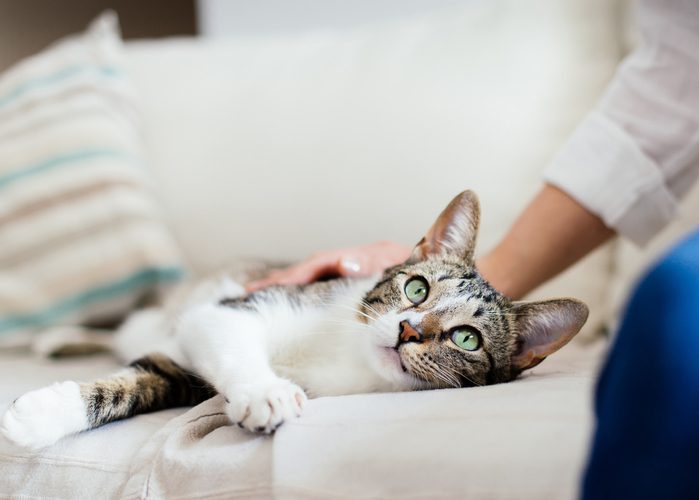Symptoms and Treatment of Feline Leukemia in Limerick, PA
If you have a cat, you might already be aware of feline leukemia. This serious illness can be fatal to cats, and it’s a very dangerous risk for any cats who spend time outdoors or in boarding facilities.
But what are the symptoms of this disease, and is there anything that can be done about it? In this article, we’ll walk you through the basics you need to know about feline leukemia in Limerick, PA, including the symptoms and any treatment or management solutions available. Read on to learn more about this illness and how it could potentially affect your cat.

Symptoms Your Cat May Experience
There are many different symptoms of feline leukemia that your pet might experience. If your cat is showing any of these symptoms talk with your veterinarian.
Loss of Appetite and Loss of Weight
Appetite loss and weight loss are some of the earliest signs of feline leukemia but are also associated with a variety of other cat health problems.
Frequent Bladder and Respiratory Infections
Cats with feline leukemia may be much more likely to develop frequent and repeated bladder and respiratory infections. If your cat gets sick often, feline leukemia could be the potential underlying cause.
Enlarged Lymph Nodes
Enlarged lymph nodes are a sign that cats are very sick. Just like humans, cats may have swollen lymph nodes because of their bodies trying to fight off an illness or infection.
Poor Coat Health
Poor coat health may be a symptom of a variety of health problems in cats. However, coat condition may deteriorate quickly in cats who are suffering from feline leukemia.
Neurological Symptoms
If your cat has sudden behavioral changes or seems to be much more aggressive than he used to be, this could be a sign that he’s dealing with feline leukemia. Other neurological symptoms associated with feline leukemia include head tilt and, much more commonly, seizures. Seizures may be associated with other illnesses in cats too.
Frequent Fever
A frequent, recurring fever that either won’t go away or that comes back very quickly is another common sign of feline leukemia. Your veterinarian may try ruling out other potential causes of a frequent fever to determine if a test for feline leukemia is necessary.
Treatment, Management and Prevention for Feline Leukemia
There is no treatment for feline leukemia. This is extremely important to remember. If your cat is diagnosed with this condition, there is no treatment option, and it will likely be a terminal diagnosis. If a cat is diagnosed early and receives excellent vet care and home care both, he may live for about three years following his diagnosis. Although it is extremely rare, some cats have been known to recover fully from feline leukemia, but this should not be considered the norm by any means.
Your vet will work with you to figure out the best course of action for your pet.
Antibiotics
Cats may receive antibiotics for acute infections. Since cats with feline leukemia are highly prone to developing secondary acute infections, they will often need antibiotics to recover from these illnesses. Your vet will be able to prescribe antibiotics for your cat when the need arises throughout his battle with feline leukemia.
Pain Medication and Diet Change
Cats may receive pain medication or be put on a healthier diet to help manage the condition. If your cat is in a lot of pain due to health problems that are occurring because of his feline leukemia, your vet will likely give him a pain medication prescription. The vet will also instruct you to feed your cat a healthy, high-quality food and keep up with his dietary needs to ensure he stays as healthy as possible.
Prevention Methods
Prevention methods include keeping cats indoors at all times and having cats tested yearly. Only cats who are kept indoors at all times and are never exposed to other cats are considered without risk of feline leukemia. Even if you keep your cat inside all the time, however, you should have him tested annually. This way, if he does contract this illness, you can respond quickly.
Feline Leukemia Vaccination
The most important prevention method is the feline leukemia vaccination. The vaccination is not 100% effective for every cat, but it can give your cat much more of a chance at fighting off the risk of feline leukemia. Vaccinated cats are considerably less likely to contract this deadly disease, so ask your vet about the vaccine.
Your Limerick Veterinary Hospital Vet Can Help
As you can see, feline leukemia is extremely dangerous. It is fatal to most cats who contract it, and many cats with this illness do not live more than a few years. However, there are some things you can do to reduce the risk of feline leukemia for your cat or remove the possibility altogether.
If you have any further questions or concerns about this disease or any of its preventative options, be sure to talk to your vet for more information. Your vet can answer your questions with regards to your specific cat’s individual needs.
To book an appointment at Limerick Veterinary Hospital call (610) 489-2848 or book an appointment online.
